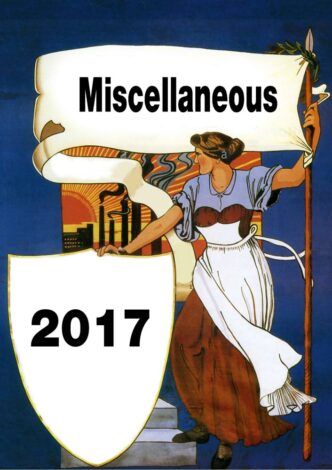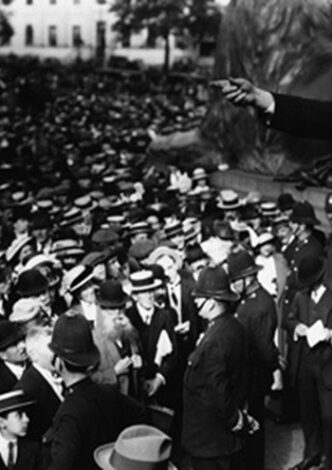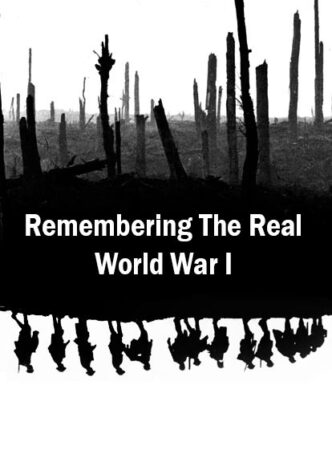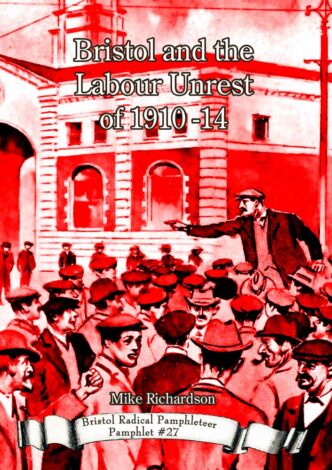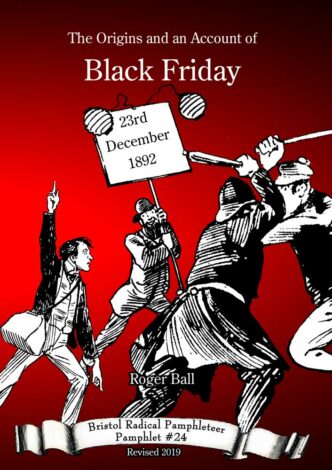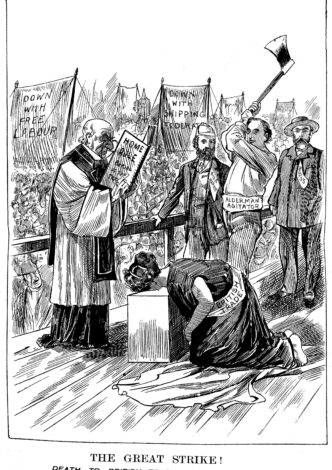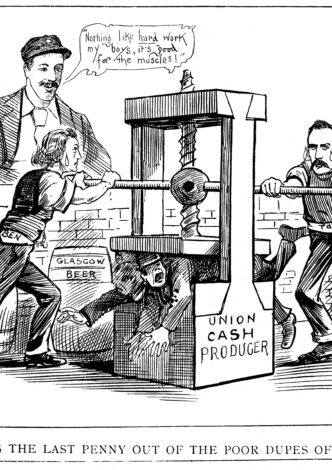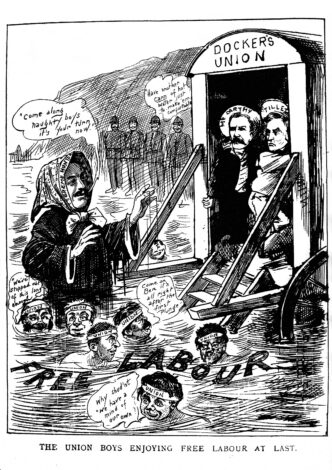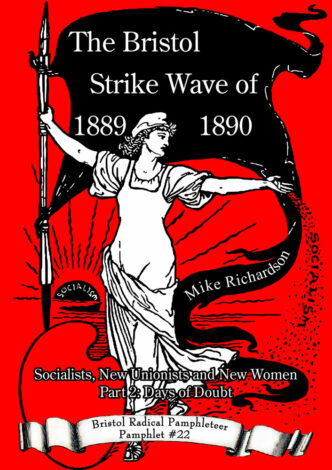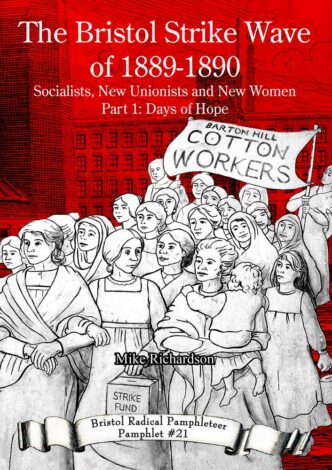 Not A BRHG Event
Not A BRHG Event
Glenside Museum, The Chapel, Glenside Campus, Blackberry Hill, Stapleton, Bristol BS16 1DD Bristol Radical History group author, researcher and co-founder Roger Ball talks us through the REAL ‘Black Friday’ i.e. not the end of November shopping spree but the strikes and protests of autumn 1892 in Bristol, starting with the ‘Sweet Girls’ dispute at the Redcliff Confectionery works. Come and listen to a tale of ‘thousands of working class Bristolians’ marching to the Horsefair with lanterns & […]
Bristol was rocked by two major strike waves in the late 19th Century, the first (1889-90) marked the emergence of ‘new unionism’ representing male and (significantly) female unskilled and semi-skilled labourers. Victory in these strikes improved pay and conditions for workers but led to an organised counter-offensive by employers in the autumn of 1892. The response of workers was a second strike wave which united miners, dockers and female confectionary workers, culminating in 'Black Friday' on […]
Opposition to WW1 in Bristol in August 1914 War enthusiasm? There is a perception in Britain that popular patriotic pressure drove politicians to declare war on Germany on August 4th 1914 and that the population somehow desired war. This so-called ‘war enthusiasm’ has been characterised in the popular memory as: "cheering crowds outside Buckingham Palace, long lines outside recruiting offices and of soldiers marching away singing 'Tipperary'" . These images have been recently promoted by TV […]
Mass meeting, debate and resolutions With Ernest Bevin (National Organiser Dockers Union) and Ben Tillett (General Secretary National Transport Workers Federation) On Narrow Quay by the Arnolfini, Bristol On Sunday 2nd August 1914, tens of thousands of people demonstrated across the country against Britain's entry into what became the first World War. In Bristol an anti-war demonstration on the Downs was followed by a mass meeting of Dockers on the Grove to discuss the worrying situation on the […]
1910 saw a renewed outbreak of industrial strife as significant sections of the trade union rank-and-file began to express their frustration at the lack of progress made in their struggle for better working conditions and a new social order. Strikes reached levels not seen since the ‘new unionism’ upsurge of 1889-92. Worker unrest combined with clashes over Home Rule for Ireland and the militant tactics of suffrage campaigners added to the problems of the ruling class who, confronted by these […]
Autumn 1892 in Bristol saw a violent class war between employers, strike-breaking labour and police on one side and strikers and their mass of working-class supporters on the other; picketing, mass marches and public meetings of thousands of ‘new’ industrial unionists were common. The strike-wave culminated in the use of military and police by the local state to break up a pre-Christmas parade which had been organised to collect money for strikers and their families. This event, which popularly […]
Following on from part one, this pamphlet traces the period of industrial unrest in Bristol between January and August 1890. The lockout of boot and shoe workers that began in December 1889, and continued for the first few weeks of January 1890, provided the opportunity for combining the forces of skilled organised workers with the unskilled and unorganised, in the drive to improve working conditions. It also encouraged forms of social unionism, with links to the wider community. Employers […]
During 1889-1890, a strike wave swept across Britain hitting many major towns and cities. Bristol was not immune. The scale and intensity of industrial unrest in the city reached a level never experienced before. The city’s labour historian Samuel Bryher depicted Bristol at this time as ‘a seething centre of revolt’. This experience set in train a qualitative change in the organisation of workers; and salutary lessons emerged for consideration for those politically active in the newly formed […]
 Not A BRHG Event
Not A BRHG Event
